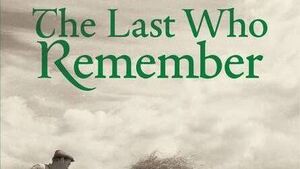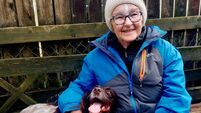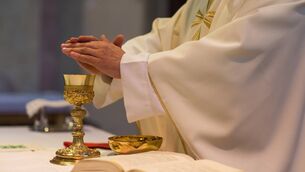Living Greener: Our elderly are an astonishing resource

The Last Who Remember
WHEN I moved to Co Kildare twenty years ago, I had a few goals. I wanted to live more simply and self-sufficiently, to create a space of innocence away from the electronic world where I could read to my daughter by the fire.
I tried to cook, grow food, keep animals and build things, and I learned from my neighbours who remembered how to do these things.
I learned how to shape wood and metal and stone, how to twist branches into baskets and hedges and house walls.
I learned how to preserve food without electricity, pickling and salting and fermenting, making hedge-berries into jam and flowers into wine, picking wild plants and mushrooms.
I talked to people who kept alive old skills that everyone used to have, before everything was cheap and fast and thrown away.
I thought I would just learn about gardening, but the conversations ranged far beyond that. Conversations over farm gates and on the bus gradually became interviews, as neighbours let me record them with a camera or microphone.
I had been a investigative reporter and was not easily shocked, but I kept stopping them in conversation and asking to go back and explain something that sounded unbelievable – like when my neighbour mentioned the times there was no money.
“You mean jobs were scarce?” I asked. No, he said, there were times the 1960s and 70s that all the banks were closed for months, locking up almost all the cash in the nation. There was no money.
“I’m sorry, what?” I said. “How ... did people get buy anything to live?” Well, he explained, most individuals just grew and made things themselves, and when they couldn’t, they wrote checks – IOUs to each other. When the banks re-opened, almost no checks bounced. Three million people knew their promises and kept them, and a country without money kept running. Few nations have ever achieved such a safe, high-trust society as Ireland was.
The incredulous moments kept coming. Wait, I asked, people let any stranger sleep in their house in exchange for a story?
You walked miles to school barefoot, but also learned Latin?
The priest held Mass in people’s homes, and everyone took turns?
When someone died, you lay out their body on the kitchen table and held a party for them?
These days most Irish are pathologically embarrassed by their past, but they shouldn’t be. Elderly rural Irish are an astonishing natural resource, some of the last people to remember the kind of traditional world that all humans lived in until historically yesterday.
Like all our ancestors, they lived mostly outdoors, and knew their land and turned its seeds and leaves and animals into food. They shaped wood and fibre and stone and metal into useful things they needed, and learned from parents and older relatives until they became masters of a craft.
In the evenings, around the fire, they sang the stories of their people. With luck, they died surrounded by children and grandchildren, who sang songs of grief and lovingly prepared their body for the grave.
Only in the last few generations have we spent most of our lives indoors, staring at screens, dependent on distant powers for food and water and life, knowing only the songs and stories that the screens sell to us.
I’m not romanticising their lives; this was also before cures for polio or tuberculosis, when most children wore hand-me-downs.
I wouldn’t want people today to live exactly as they did, even if that were possible. Their lives were remarkable, not because they lived without hardship, but because they maintained a safe, highly literate, high-trust despite – or perhaps because of – all that hardship.
I accumulated my own library of interviews. I found journals and memoirs, and read more than a hundred. I went through historical archives, century-old school-papers, old radio and television interviews, and put them all together -- all told, the words of a few hundred people – to reconstruct a traditional world.
Now, I’ve put 20 years of research and interviews into a book, called ‘ ’.
And the book grew in the telling, as Tolkien put it, becoming a story not just of rural Ireland in the mid-20th century, but of all traditional culture, and of what we gained and lost when we went modern.
If you read this column, check out the book on Amazon: search by the title or my name.





